Crash Course World History Videos 1-5
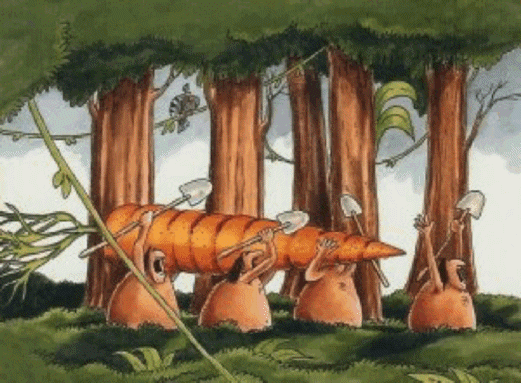
Early vegetarians returning home from the kill
Crash Course #1: Agricultural Revolution
- How do we have evidence of Hunter-Gatherers and their lifeways? (New word that means “ways of life,” do not use “lifestyle”).
- What do most early civilizations have in common?
- What advantages did Hunter-Gatherers have over early agriculturalists?
- Where did agriculture emerge? Which food crops are associated with which areas?
- What are the advantages and disadvantages of agriculture?
- What impact does agriculture have on the environment?
- What other lifeway emerged besides being a Hunter-Gatherers or a farmer (agriculturalist)?
- What were the advantages and disadvantages to Pastoralism (being a herder)?
- Welcome to the MONGOLS! We love talking about the Mongols! We are…wait for it… __________________.
- What advantages do you think that Eurasia had with its zoological set of animals compared to the Americas?
- Evaluate John Green’s thesis that “the greatest evolutionary advantage an animal species can have is being useful to humans.” Agree/disagree, why?
- If Hunter-Gatherers had a “better and healthier” lifeway, why did people become agriculturalists?
- What point do you think John Green is making about the use of the word “savage”? How might this also apply to concepts of being “civilized” or “uncivilized”?
- What do historians say are the drawbacks to complex civilizations and agriculture?
- What other impacts do complex civilizations have on the environment?
- What does John Green say about “revolutions”?
- What does DFTBA mean?
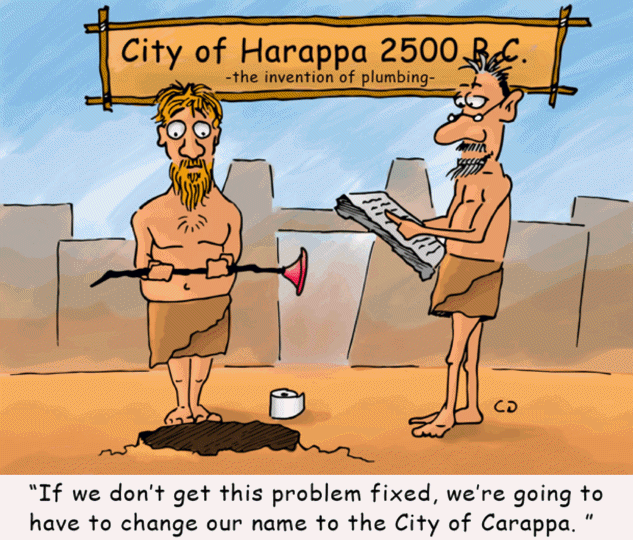
Crash Course #2: Indus Valley Civilization
- How is the concept of “civilization” a useful construct? When is it not a useful construct?
- How does John Green define what constitutes a civilization? How does this compare to other definitions of civilization you have learned?
- Where did the earliest civilizations emerge? Why there?
- Why was the Indus Valley a prime location? How did the environment impact the people who lived there?
- How do we know, what we know, about the IVC?
- How did they use technology to interact with the environment to improve their quality of life?
- What evidence exists of long-distance trade and with whom?
- What appears to be unique about the Indus Valley civilization, based on your knowledge of other civilizations?
- What theories do historians have about the fate of the Indus Valley civilization? As historians, what evidence might one look for to support or disprove these three theories?
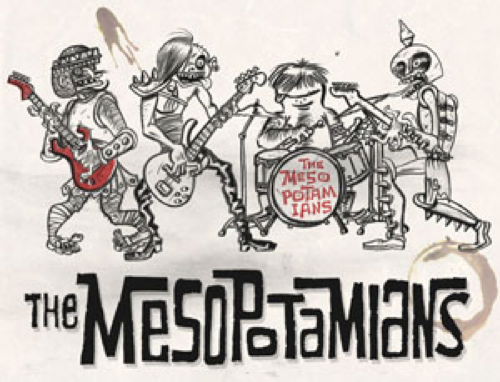
(They Might Be Giants) -- “Mesopotamians”
Watch this music video. Identify the members of the band with a one sentence biography for each, identifying role, time, and place.
Crash Course #3: Mesopotamia
- John Green begins by discussing one of the most obvious consequences of agriculture…what is it and what are the most immediate consequences for those societies?
- Humanities Question -- Gilgamesh…Rural vs. Urban: explain what John Green is talking about?
- Historically speaking, why do you think cities tend to win? But did cities always win? Explain.
- Why do you think early cities devoted resources to building monumental architecture, like ziggurats?
- How does Mesopotamia compare with the Indus River Valley? Identify both similarities and differences. Think of why a specific similarity and a specific difference might exist. (This is analysis; one of the more challenging skills you will need to develop.)
- How might the environment of Mesopotamia influence or shape people’s perceptions of their gods?
- What is the significance of the emergence of palaces? How did kings gain power over priests? How did they keep it?
- Cunieform: What three points does John Green make about the advent of writing?
- How did the environment of Mesopotamia shape the economy of the society?

(Green Day) -- “Mummification”
Watch this music video. Take notes on the mummification process.
Crash Course #4: Egypt
- What point is John Green making about the different “lenses” we use when we study history?
- How did the Nile River shape the worldview of the Egyptians? How did this compare to the Mesopotamian worldview?
- How was Egyptian Civilization different from most other River Valley Civilizations? Why do you think this was?
- What does the construction of the pyramids represent? (not “what was the purpose of the pyramids?”)
- What was the motivation for building the pyramids? (not “what was the purpose of the pyramids?”)
- What changes took place in the transition from the Old Kingdom to the Middle Kingdom?
- Amon-Ra or Top Ramen…you decide…
- What protected Egypt from outside peoples? How were the Egyptians eventually conquered by Semitic peoples of the Middle East?
- What changes took place in the transition from the Middle Kingdom to the New Kingdom?

Crash Course #5: The Persians and Greeks
- Mongol Exception Rule: The Mongols are the exception to what general rule about empires?
- Explain the concept of historical bias using “the Father of History,” Herodotus, as an example.
- Describe the characteristics of the Persian Empire.
- How did the Persian religion of Zoroastrianism impact the development of labor systems in Persia?
- Describe the Greek City-States.
- What was the cause of the Persian Wars?
- What was the cause of the Peloponnesian War?
- What is “realism” in political terms? What quote did you just hear that succinctly explains that philosophy?
- What arguments can be made that a Persian victory might have been a good thing?
- Flashback Question: How do we know much of what we “know” about the Persians? Make a mental note to hold on to this idea. It has an important underlying concept to which we will continually refer.
|
|
Crash Course World History Videos 6-11
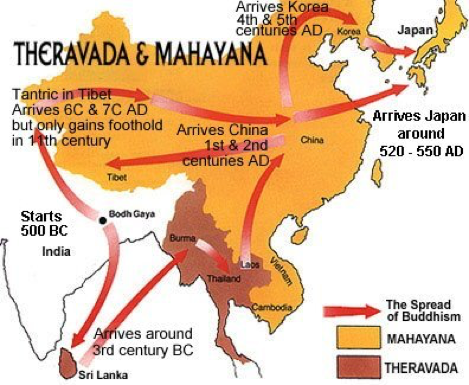
Watch the music video -- The Mahabharata
(based on “Abracadabra” by the Steve Miller Band)
Write a sentence summary of the tale.
Crash Course #6: Buddha and Ashoka
-
Why is point-of-view (a phrase we use instead of bias) important to keep in mind when studying India?
-
What are the Vedas and where did they come from?
-
What is the basis for the caste system and what purpose did it serve?
-
How does the caste system relate to dharma?
-
How did the concepts of samsara, moksha, and karma provide social cohesion in India?
-
What are the Four Noble Truths and the Eightfold Path?
-
Why did Buddhism have such a strong appeal to certain groups but not others?
-
What did Ashoka accomplish? What are the key ideas found on Ashoka’s Pillars?
-
How was Hinduism able to adapt to resist the challenge of Buddhism in India?
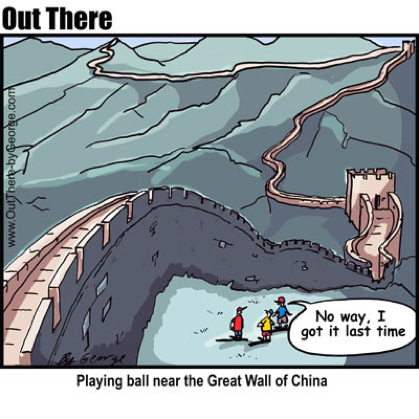
Crash Course #7: China 2000 Years & the Mandate of Heaven
There are fewer of these questions but they require more substantial answers.
-
What characteristics made China the first “modern state”?
-
Create a timeline of Chinese Dynasties (include interludes) from the muythical Xia dynasty to the creation of the Republic in 1911.
-
Explain the Mandate of Heaven and how it works.
-
Describe the Confucian belief system. How does it manifest itself in Chinese culture today?
-
Mongol Exception Rule: In what way does John Green claim the Mongols are an exception in this episode? Is this an accuarte claim? Why or why not?

Write a short paragraph explaining this quote. Integrate the quote in your own sentence, punctuate properly, and attribute correctly
Listen to Macedonia (based on “My Sharona” by the Knack),
and, yes, take notes.
Crash Course #8: Alexander the Great
This episode has very few questions, but they should be answered more substantially.
-
This episode centers around a popular historiographical theme -- The Great Man Theory. Summarize this theory in your own words.
-
What definitions of greatness does John Green provide? You need the whole video to answer this fully.
-
What is the historical significance of Alexander?
-
Analyze John Green's thesis regarding greatness.
-
How do you define greatness? What do you think makes an individual great? What factors do you think should be taken into account? Is there a “Greatness Formula”? (Like Kim Kardashian Gold? Not)
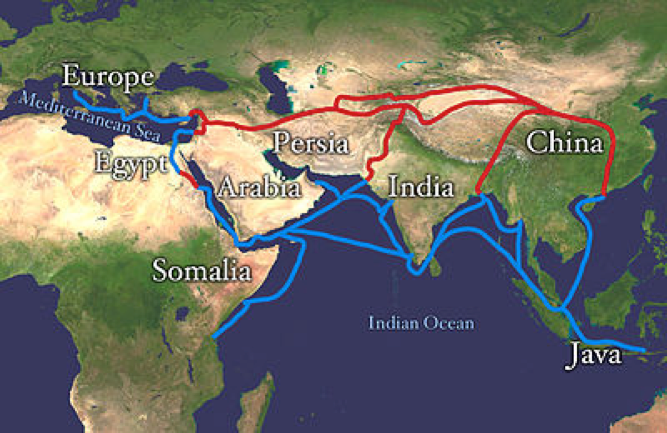
Crash Course #9: The Silk Road and Ancient Trade
-
How did the Silk Roads reshape lives in Afro-Eurasia?
-
Describe the characteristics of the Silk Roads.
-
Why were goods that traversed the Silk Roads so expensive?
-
Is there a common characteristic that describes the goods that were traded along the Silk Roads?
-
What impact did nomadic steppe peoples have on the Silk Roads? How were they well-suited to interact on them?
-
Mongol Exception Rule: The Mongols are the exception to what general rule?
-
Who were the Kushan people and what impact did they have on the Silk Roads?
-
What new social class began to emerge during this time and with what impact?
-
What are three ways that the Silk Roads impacted the non-wealthy, non-elites? (A three paragraph response.)
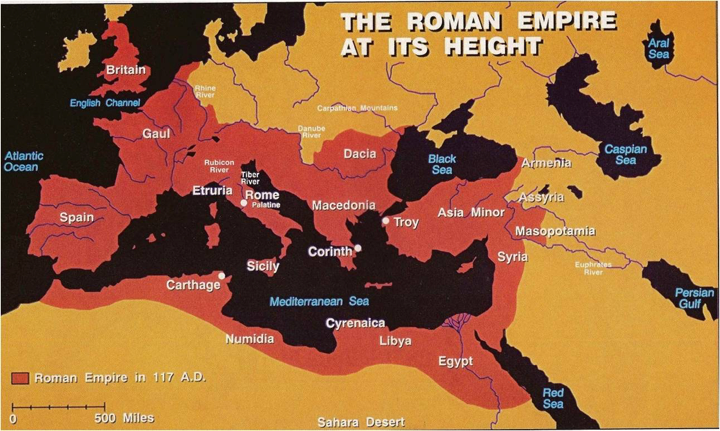
Listen to Cleopatra (based on “Fergilicious” by Fergie),
and, yes, take notes.
Crash Course #10: The Roman Empire...or Republic
-
Is it accurate to call the Roman Republic a “democracy”? Why or why not?
-
How did Julius Caesar come to power? Why was he assassinated? Was he unique in what he was trying to accomplish? Did his assassins achieve their ultimate goal? (which was NOT to kill him. I mean they meant to kill him, but they had a “higher” purpose for doing so.)
-
What are the characteristics of an empire as opposed to just a big nation-state?
-
According to John Green, when did Rome cease being a republic and take on the characteristics of an empire?
-
How did Rome become an empire? What was a driving factor in Rome’s becoming an empire?

Look at this map on the origina and spread of Christianity before you watch the video. Draw some concluions based only on the map.
Crash Course #11: Christianity: from Judaism to Constantine
-
What new religious concept did the Hebrews introduce?
-
Mongol Exception Rule: What is this episode’s “Mongol Exception”? Is it?
-
How were the Romans “Hellenizers”? What does that mean?
-
Who would have been particularly attracted to Jesus’ message and why?
-
Which groups were threatened by Jesus’ message and why? Should they have been?
-
What vitally important information about Jesus is left out of this episode? Why do you think the producers chose to leave it out? Without it, do you believe this episode presents an accurate picture of Christianity? Why or why not?
-
Why was Paul particularly well suited to spread the Christian gospel (Good News)?
-
What appears to be the turning point in spreading the Christian message to a larger audience? When did this happen?
|

